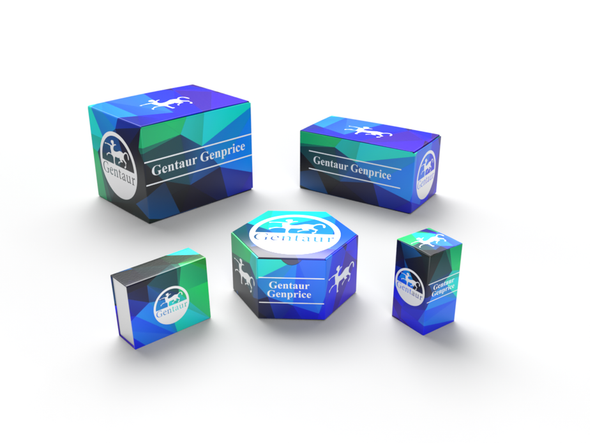740
Human Tumor protein p53-inducible protein 11 (TP53I11) ELISA Kit | AE13743HU
- SKU:
- 740-AE13743HU
- Availability:
- Usually ships in 5 working days
Description
Human Tumor protein p53-inducible protein 11 (TP53I11) ELISA Kit | AE13743HU | Gentaur UK, US & Europe Distribution
Species Reactivity: Human (Homo sapiens)
Abbreviation: TP53I11
Alternative Name: PIG11; p53-induced protein
Application: ELISA
Range: 31.25-2000 pg/mL
Sensitivity: 12.5 pg/mL
Intra-Assay: ≤4.3%
Inter-Assay: ≤7.1%
Recovery: 0, 99
Sample Type: Serum, Plasma, Other biological fluids
Detection Method: Sandwich
Analysis Method : Quantitive
Test Principale: This assay employs a two-site sandwich ELISA to quantitate TP53I11 in samples. An antibody specific for TP53I11 has been pre-coated onto a microplate. Standards and samples are pipetted into the wells and anyTP53I11 present is bound by the immobilized antibody. After removing any unbound substances, a biotin-conjugated antibody specific for TP53I11 is added to the wells. After washing, Streptavidin conjugated Horseradish Peroxidase (HRP) is added to the wells. Following a wash to remove any unbound avidin-enzyme reagent, a substrate solution is added to the wells and color develops in proportion to the amount of TP53I11 bound in the initial step. The color development is stopped and the intensity of the color is measured.
Product Overview: Galectin-7, a member of this family, contributes to different events associated with the differentiation and development of pluristratified epithelia. It is also associated with epithelial cell migration, which plays a crucial role in the re-epithelialization process of corneal or epidermal wounds. In addition, recent evidence indicates that galectin-7, designated as the product of the p53-induced gene 1 (PIG1), is a regulator of apoptosis through JNK activation and mitochondrial cytochrome c release. Defects in apoptosis constitute one of the major hallmarks of human cancers, and galectin-7 can act as either a positive or a negative regulatory factor in tumour development, depending on the histological type of the tumour.
Stability: The stability of ELISA kit is determined by the loss rate of activity. The loss rate of this kit is less than 5% within the expiration date under appropriate storage condition. The loss rate was determined by accelerated thermal degradation test. Keep the kit at 37°C for 4 and 7 days, and compare O.D.values of the kit kept at 37°C with that of at recommended temperature. (referring from China Biological Products Standard, which was calculated by the Arrhenius equation. For ELISA kit, 4 days storage at 37°C can be considered as 6 months at 2 - 8°C, which means 7 days at 37°C equaling 12 months at 2 - 8°C) .






